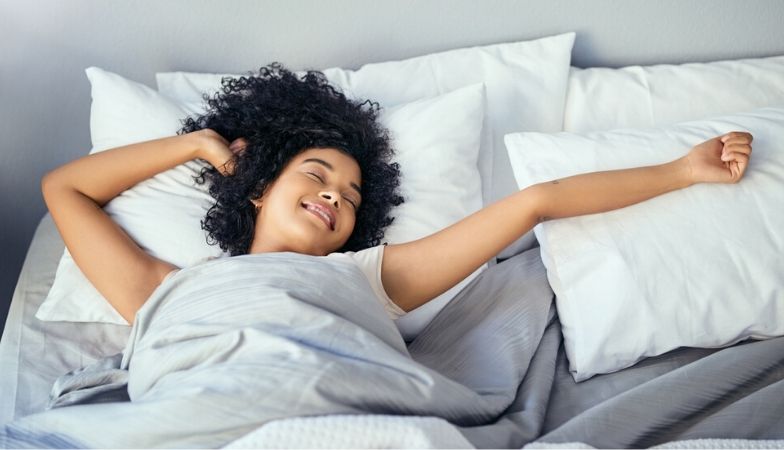Whether you’re worried about that virus or general life pressures are mounting, there seems to be a lot of insomnia about right now – for World Sleep Day, Olivia Hartland-Robbins finds out what natural remedies will help you sleep
While some people are able to cope with little sleep, the majority of us cannot, and we tend to feel the effects when we find it hard to function properly the following day.
We’ve all had trouble sleeping at one time or another, whether it’s chronic insomnia or just a bad night. But good quality sleep is arguably the most important thing we need when it comes to optimal health.
Yet these days, many of us are simply not getting enough. Most people’s bedtime routine includes flicking through their phone, regretting having a coffee after 5pm and not being able to quiet their busy thoughts – sound familiar?
Why aren’t we sleeping?
Insomnia is a disorder where you find it difficult to fall asleep, stay asleep or you continuously have a disturbed night’s sleep.
There are many causes of insomnia such as; a room that’s too hot or cold, an uncomfortable bed, alcohol, caffeine or nicotine, jet lag, shift work, anxiety or depression.
Most of us have suffered from insomnia at some stage of our lives, but tend to notice it more when we are worried or stressed and it turns out very few of us are able to ‘switch off’ or stop our minds from racing after a stressful or busy day.
the average person has over nine things on their mind at any given moment
A survey on behalf of vitamin and supplement brand Healthspan of 2,000 adults found that 62 per cent believe their mind is constantly running ‘a mile a minute’, while 83 per cent of people feel like they constantly have lots going on in their head.
In fact, the average person has over nine things on their mind at any given moment. This ranges from simple everyday decisions to stressful money worries or big life changes.
What’s more, three quarters of those polled, via OnePoll have so much on their mind that they struggle to switch off their racing minds, with the average adult facing poor sleep three nights a week.
Dr Meg Arroll a psychologist on behalf of Healthspan who commissioned the research says, ‘Being able to ‘switch off’ and clear your mind of worries and concerns isn’t something that comes naturally to many people. Like most skills, it requires a lot of practise but can offer huge rewards, if you keep it up’.
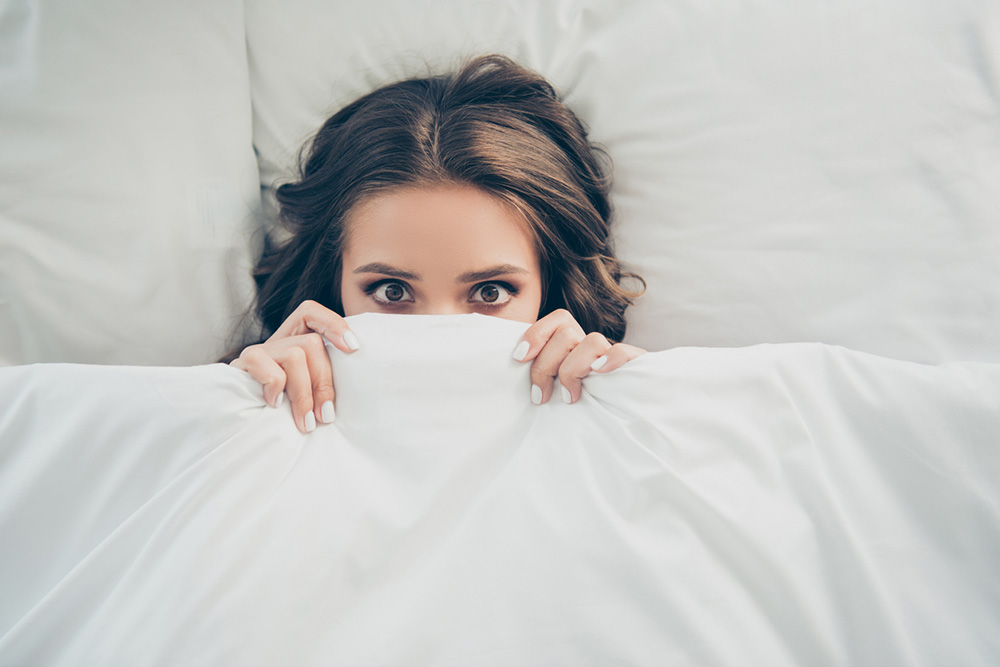
Why is sleep so important?
So much happens to our mind and body when we sleep.
Our brain processes information to create new memories, our muscles and joints recover from their use during the day and we produce increased amounts of growth hormone which aids the regeneration and rejuvenation of our cells.
‘As well as affecting our physical and emotional well-being, poor sleep also increases our risk of having an accident (due to excessive tiredness), raises our blood pressure and reduces our immunity so we are less able to fight off infections,’ says Dr Sarah Brewer, Medical Director at Healthspan.
so many of us feel less strong mentally when experiencing a poor night’s sleep
‘If you are exposed to a common cold virus, for example, you are almost three times more likely to catch it and develop symptoms if you consistently get less than seven hours of sleep a night, than if you are sleeping eight hours or more,’ Dr Brewer adds.
It also emerged that two thirds of those polled, feel less able to handle everything on their mind, when they’ve had a bad night’s sleep.
‘This study has found that so many of us feel less strong mentally when experiencing a poor night’s sleep,’ says Rob Hobson, Healthspan’s Head of Nutrition and author of The Art of Sleeping.
‘Short-term sleep deprivation can impact on concentration, memory, learning, mood and relationships during the day. Long-term, a lack of sleep can have much more serious effects centered around inflammation’.
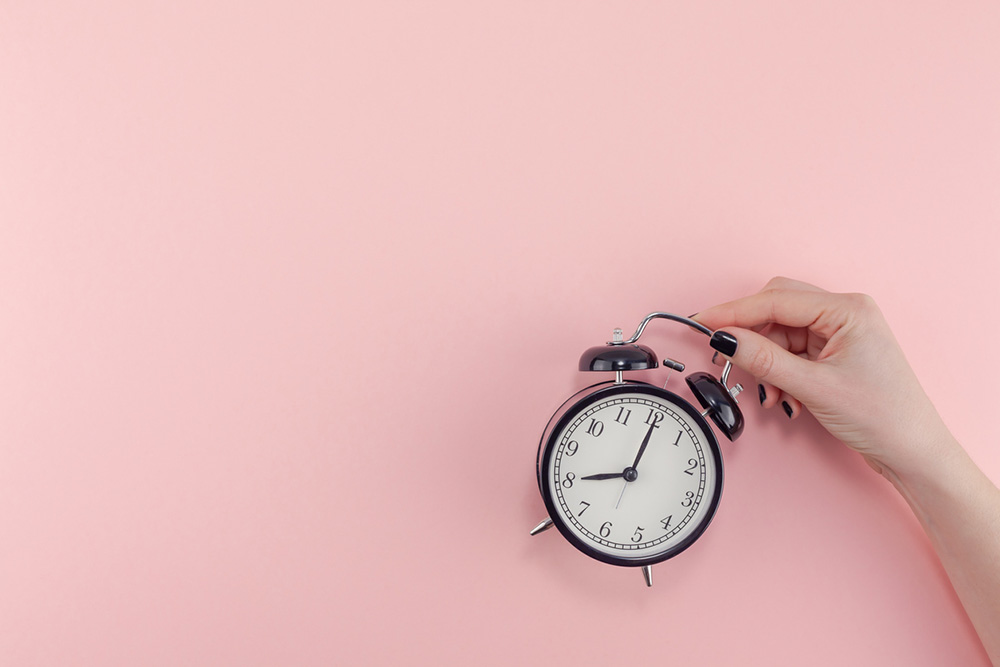
What makes the perfect night’s sleep?
When feeling exhausted and in desperate need of sleep, lying wide awake in bed is a miserable experience.
‘Around 31 to 55 per cent of sleep duration is based on genetics, the remainder, however, is influenced by everyday factors like your behaviour, environment and diet,’ says Hobson.
As this month is National Bed Month, we have been thinking about the ingredients of a perfect night’s sleep.
Everyone could benefit from learning a little more about how we can change our lifestyle habits rather than resorting to sleeping pills (or excessive alcohol) to help us nod off.
Not to mention, how nice it would be to wake up rested and ready for the day ahead?
Dr Sarah Brewer’s top sleeping tips:
- Avoid napping or sleeping during the day.
- Don’t drink too much fluid in the evening or you will be going to the toilet all night.
- Exercise regularly, but avoid high intensity exercise in the evening or it will keep you awake.
- Avoid substances known to interfere with sleep such as caffeine, nicotine and alcohol (4 hours before bedtime).
- Wind down before bed by reading or listening to soothing music.
- Take a relaxing candlelit bath.
- Keep electrical devices them away from where you sleep as they may emit electromagnetic frequencies that interfere with sleep.
- Don’t stare at screens before bed (30 mins), including phones, computers, tablets or TV. The blue light emitted will switch off the production of melatonin – your natural sleep hormone.
- Try falling asleep listening to a meditation soundtrack.
‘Exercising good sleep hygiene habits while eating a balanced diet is key to restful sleep,’ says Hobson.
‘But there are also plenty of natural supplements such as valerian and 5-HTP that may be a useful addition to help you on your sleep quest’.
So, without further ado, let’s look at some natural (less obvious) ways you can get the best night’s sleep…
#1 Start taking CBD oil (you’ll never look back)
Insomnia and sleep disorders are among the top five reasons for taking CBD (Cannabidiol).
CBD works directly on the endocannabinoid system in the brain, enhancing the effects of other brain chemicals, such as serotonin and anandamide, to reduce pain perception, relieve anxiety and stress, improve sleep and lift mood.
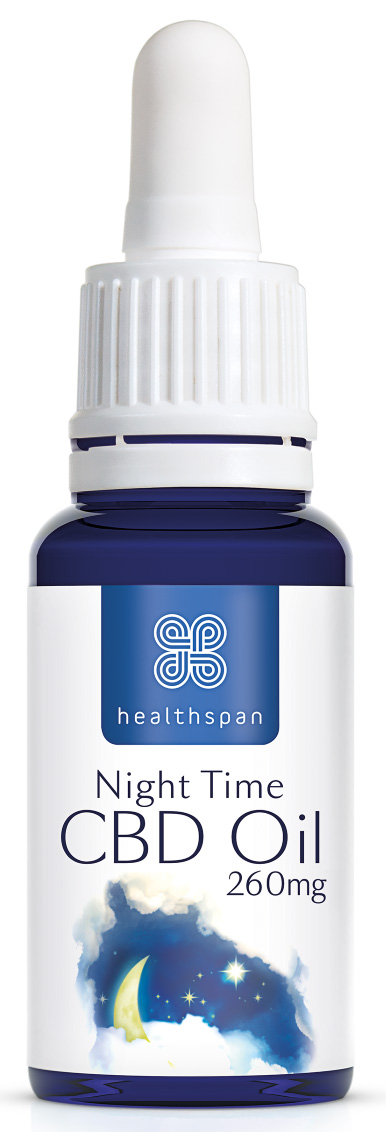
‘There are plenty of options for improving your sleep and CBD oil could be one of them,’ says Dr Brewer.
‘Cannabidiol (CBD) is a popular treatment for insomnia as it promotes refreshing REM sleep’.
REM sleep means Rapid Eye Movement and is essentially the term for when we enter a deeper phase of sleep, usually when you dream. It’s also the kind of sleep you hope to get several times during the night as it helps process emotions and memories and is essential to long-term wellbeing.
Not only is CBD great for promoting REM sleep but also CBD also reduces muscle tension, restlessness and anxiety. Many studies have proven the effectiveness of CBD on sleep quality.
Indeed, a recent study presented at the sixteenth annual conference of the International Society of Sports Nutrition in 2019 showed that taking just 15mg CBD for six weeks produced significant improvements in sleep and quality of life, such as less daytime sleepiness.
Try Healthspan’s new Night-Time CBD Oil Oral Drops, £22.95 (10ml), a broad-spectrum Cannabidiol (CBD) containing chamomile, honey, hops and lemon balm – specially formulated for night-time use.
‘If people haven’t used any other of our CBD Oils before I recommend starting low and slow in terms of dosage,’ suggests Dr Brewer.
This night-time formulation is absorbed directly into the bloodstream for fast absorption. Take one to eight drops up to 30 minutes before bed and hold in your mouth (under the tongue) for a while before swallowing’.
#2 Treat yourself to a Lumie light
What most people don’t realise is that shutting out the sunset and sunrise and making your room as dark as possible isn’t actually beneficial for your internal body clock or the perfect night’s sleep.
Our body clocks are set to the external world as a result of the light and dark cycle. This is due to the cells found on our eye called photosensitive retinal ganglion cells, which form part of the optic nerve.
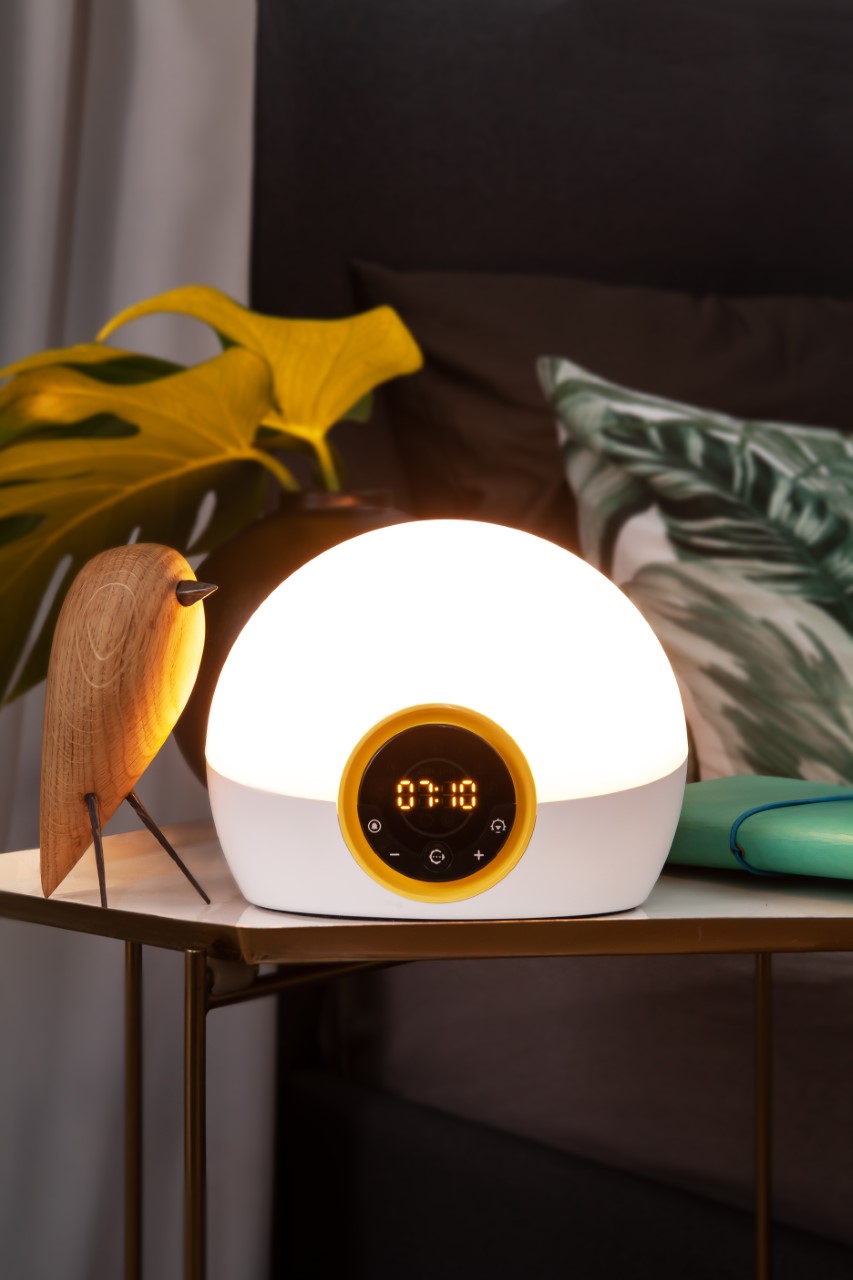
These cells pick up light signals and convey the light and dark information to the body’s ‘master’ clock, found in the brain.
This ‘master clock’ then sends signals to every cell in the body’s organ systems (all of which have their own internal 24-hour clock) to help regulate our systems.
Most of that process is determined by our exposure to natural light, which in the winter we don’t see much of. We wake up when it’s dark and go to bed when it’s dark, meaning our body clock isn’t in tune with the light/dark cycle.
So, if you want to be more focused upon waking and drift off naturally in the evenings, you need to try and maximise your exposure to natural morning and evening light by keeping the blinds or curtains open.
However, if you live in a busy city you would probably rather have your blinds and curtains closed for some privacy at night (who wouldn’t?).
If this is the case, then you may just want to invest in a Lumie Bodyclock.
The Lumie Bodyclock, £79 mimics the light and colour of a real sunrise and sunset, so you always fall asleep and wake up with gradual, natural light.
Trust us, your internal body clock will seriously thank you.
#3 Take magnesium (preferably before bed)
Magnesium is essential to healthy sleep and is often called ‘nature’s tranquilliser’ due to its calming properties in helping the body to relax and unwind at the end of the day.
You can find magnesium in foods such as kale, brown rice, spinach, broccoli, nuts, avocados, dark chocolate, seeds and pulses.
But despite this long list of everyday foods 13 per cent of adults still have low dietary intakes of magnesium, according to the National Diet and Nutrition Survey (NDNS).
Plus, one in five women aged 19 to 34 have magnesium intakes below the Lower Reference Nutrient Intake (LRNI), according to the British Nutrition Foundation.
Indeed, one of the earlier indicators of low magnesium levels is tiredness and fatigue, as well as disrupted sleep, anxiety and low mood.
if we have the right levels of magnesium in our body, we will find it easier to fall asleep and wake up at the correct time
One randomised, placebo-controlled clinical trial on 46 adults with insomnia published in 2012, found that 500mg magnesium taken daily for eight weeks improved sleep quality, and also reduced waking through the night in study subjects.
The reason magnesium is beneficial for sleep is through its interaction with a neurotransmitter called GABA (gamma-aminobutyric acid). GABA is an amino acid responsible for reducing anxiety, promoting relaxation and preparing our body for sleep.
Magnesium helps the body relax by ensuring these GABA receptors in our brain and nervous system are working as efficiently as possible.
Plus, the GABA receptors are necessary to help our brains switch off, so that our minds don’t continue to race when trying to fall asleep.
Research from the University of Edinburgh and the University of Cambridge has shown that there is a relationship between our cells’ magnesium levels and the body’s ability to follow its sleep cycle efficiently.
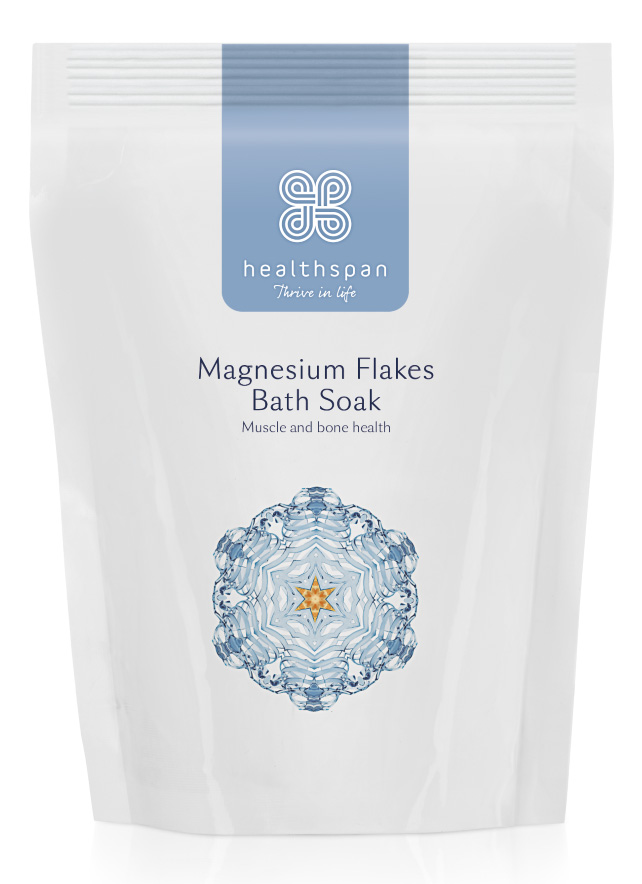
This means that if we have the right levels of magnesium in our body, we will find it easier to fall asleep and wake up at the correct time.
In order to improve your magnesium levels, try including some of the foods mentioned above in your evening meal and you may also want to take a magnesium supplement. If taken before bed it can have a relaxing effect on the mind and muscles to help promote sleep.
Try taking Healthspan’s Opti-magnesium tablets, £10.95 (90 tablets), before bed. These contain 50 per cent of your recommended daily intake of magnesium.
If you aren’t one for supplements, or you just love any excuse to run yourself a relaxing bath, you can also try Healthspan’s Magnesium Bath Soak Flakes, £9.95 (1kg pouch).
This way magnesium will be absorbed directly into the skin tissue, entering cells immediately.
#4 Switch off your mind by turning off electronic devices
As addictive as social media and technology is, it may be a good idea to limit your addiction to daylight hours only.
Natural light helps your sleep/wake cycle, but electronic light will hinder it, according to research from Brigham and Women’s Hospital and Harvard Medical University.
The study monitored 12 adult volunteers, half of which read a paper book and half from an e-reader before bed. Those who used electronics took longer to fall asleep, were more tired and less alert the next morning.
Turning off your tablets, smartphones and laptops 30 to 90 minutes before bed will help you fall asleep, will promote relaxation and prepare your body and mind for sleep.
To avoid the electronic temptation, try reading before bed or try practicing breathing exercises and meditation – anything that will allow your mind to quieten from any racing thoughts.
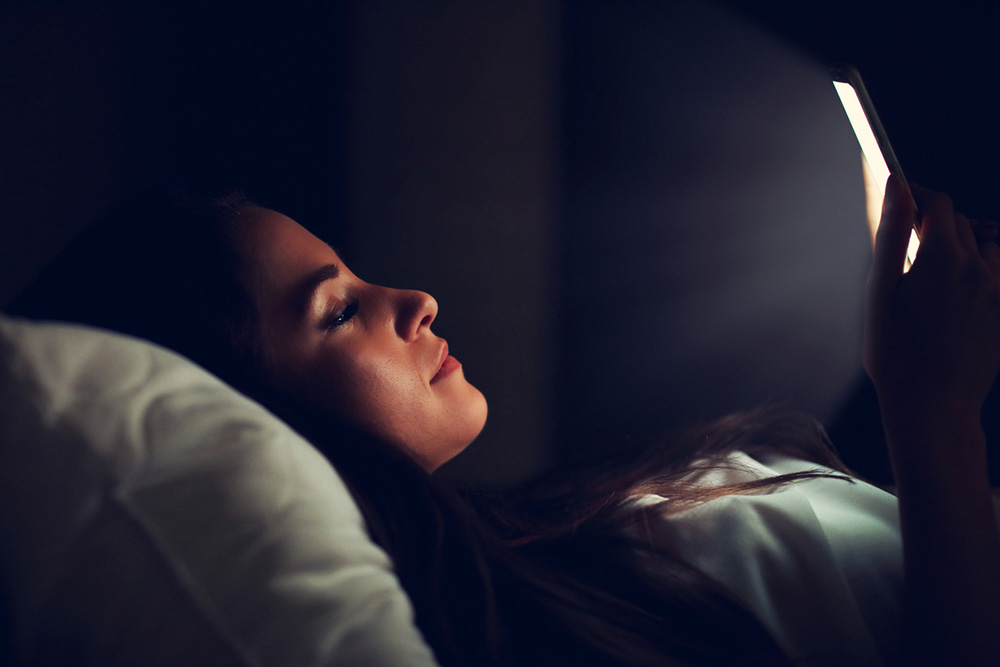
#5 Try a gravity (weighted) blanket
Ever heard of a gravity blanket or a weighted blanket? Well in 2018, sales of these rocketed to a whopping £14 million.
The theory and mechanism behind these blankets is known as deep pressure stimulation (DPS).
This means a heavyweight blanket that applies an even pressure to the body providing the feeling of a firm hug, swaddling or massage as well as feelings of security that is said to reduce stress, anxiety and aid sleep.
Research shows that DPS can reduce cortisol levels (the body’s stress hormone) as well as encouraging the production of serotonin, a hormone linked to feelings of happiness.
The blankets often sell for about £150, are made from cotton and contain dozens of tiny pouches filled with glass beads stitched into them.
These heavy blankets can weigh anything from 10lbs to 30lbs, compared with just a few pounds for a normal blanket.
#6 Improve your sleep hormones with 5-HTP
5-Hydroxytryptophan (5-HTP) is an amino acid that is found naturally in our bodies and is converted into melatonin, a hormone that helps to regulate the sleep cycle.
5-HTP, has also been shown to help lift mood by helping the body to produce a brain chemical called serotonin, which influences the sleep wake cycle by helping the body make the hormone melatonin.
When serotonin is released in the body it can give you a feeling of calm and in result reduce stress and anxiety.
5-HTP, has also been shown to help lift mood by helping the body to produce a brain chemical called serotonin
Both serotonin and melatonin are critical to sleep and a well-functioning bio clock and melatonin is an essential sleep hormone.
Several studies show that 5-HTP supplements have a positive effect on low mood, and are better than placebo in treating depression, with benefits usually occurring within two weeks.
It is recomended that 100-300mg of 5-HTP should be taken at night 30 minutes before bed.
Try Healthspan’s Night Time 5-HTP, £16.95 (60 tablets). A unique combination of 5-Hydroxytryptophan (5-HTP), magnesium and a selection of B vitamins.
#7 Adopt a bedtime routine
Getting into the habit of going to bed at a regular time each night and getting up at the same time each morning is one of the easiest ways you can improve your sleep.
A staggering 40 per cent of us don’t get the recommended six to nine hours sleep a night, research by The Sleep Council has found.
If you miss some sleep one night, you can catch up the next night with little problem. But after two or more nights of not sleeping, you’re in sleep debt and a weekend lie in won’t make up for that.
Although it may seem like a smart move, lie ins and long naps at the weekend disrupt our body clocks which in turn could disrupt our sleep and make it harder to fall asleep during the week.
So, a way to ensure you get the right amount of sleep is setting up a bedtime routine. For example, locking up, brushing your teeth, bathing, setting you alarm clock and reading for 20 minutes before bed, will all help to get you in the mood for sleep.
Plus, try waking up at the same time every day, even at the weekend. This trains your body to use the time it has to sleep most efficiently.
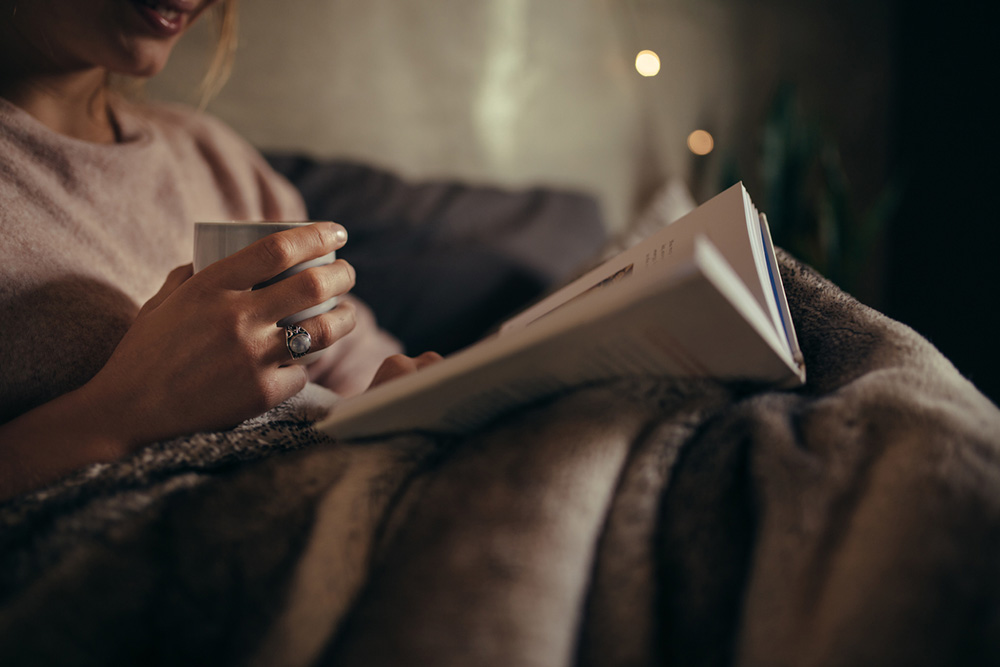
#9 Try the herbal sleep aid valerian
Valerian is a traditional herbal medicine that is frequently used to alleviate sleeplessness brought on by mild anxiety or a busy mind.
Containing a number of compounds that may promote sleep, valerian has received attention for its interaction with gamma-aminobutyric acid (GABA), a chemical messenger that helps regulate nerve impulses in your brain and nervous system.
Valerian has been found to inhibit the breakdown of GABA in the brain, resulting in feelings of calmness and tranquillity, similar to the way anti-anxiety medications like Valium and Xanax work.
One study lasting six weeks compared valerian root extract against the sleeping tablet, oxazepam. Both treatments produced similar improvements in feelings of refreshment after sleep, evening exhaustion and duration of sleep.
What makes valerian stand out though is that it does not have any of the side effects usually seen when taking sleeping tables. These include slow reaction times, reduced alertness during the day or concentration in the morning.
Try Healthspan’s Valerian Sleep Aid £15.45 (60 tablets) of valerian root extract, best taken half an hour before bedtime to aid restful sleep.
Relevant Healthista Content:
7 surprising hacks for a good night’s sleep
Healthista Content you may also like:
7 best natural candles to help you relax
5 best facials in London for glowing skin – an insider’s guide
Like this article? Sign up to our newsletter to get more articles like this delivered straight to your inbox.



